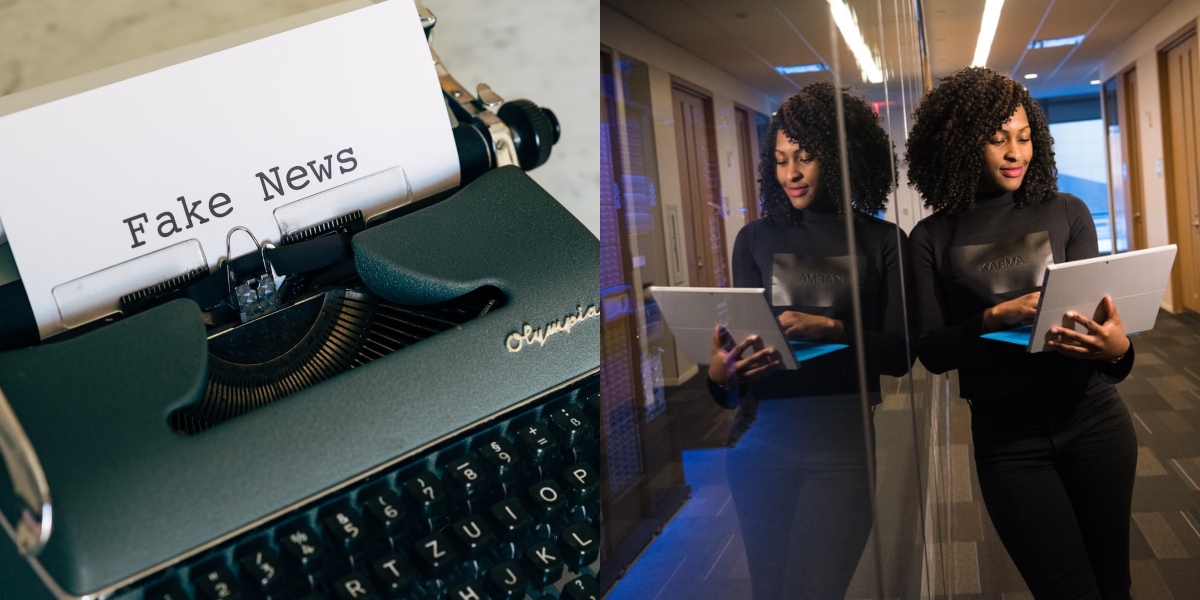Spotting fake news: YEN.com.gh throws light on how to differentiate between what is real and what is not
In this day and age, information-sourcing and gathering have become so easy that one can sit in the corner of a room and send out information that could reach thousands.

Source: UGC
Our manifesto: This is what YEN.com.gh believes in
Such information, depending on its authenticity or otherwise, can have a positive or adverse effect on those who find themselves imbibing what has been put out.
For instance, when Ebola broke out in some countries in Africa, some social media handles claimed that Ebola had reached Ghana and that the authorities were trying to suppress it.
This created a lot of tension in the country with many people scampering for safety.
Fortunately for the country, the Ghana Health Service came out to rubbish the claim.
Due to the porosity of the world wide web, such false information could have been detrimental to the nation since it could have triggered panic withdrawals which would end up crushing the economy, among many adverse effects.
The million-dollar question that one needs to ask about the mountain of information being put out at top-notch speed is that: "How do I tell when the news is fake?"
The question has been constantly asked by many internet users and YEN.com.gh has sought to provide some answers to this question.
Fake news has been with us for a while and may be around for a while until readers are enlightened on where and how to draw the line between real information and click bait articles.
Our writing process
Owing to the fact that YEN.com.gh is an independent source of information for millions of Ghanaians, we take it upon ourselves to give our readers only what is relevant and true.
Our editorial team makes every effort to verify the information we find on the internet and ensures that all the facts add up before we put out any form of information.
As part of YEN.com.gh's editorial process in avoiding fake news, we double-check any piece of news, so that maximum integrity, accuracy and precision are achieved when the story is put out for public consumption.
YEN.com.gh's experienced editors make sure that at the end of the day, we make informed decisions and not put out anything that would seek to cause unrest or tarnish the image of people.
Our professionalism in reporting the truth and nothing but the truth has put us ahead of the pack. Our readers can attest to this as we have grown to be the first point of call for anything news-worthy.
How the internet can help you spot fake news
Due to the growing concern about the adverse effects of fake news, a number of websites and tools have been created that have the main objective of verifying the news to determine their authenticity or otherwise.
These tools can be a 'go-to' point when you are in doubt about a piece of information that you have found on the internet. www.factcheck.org is one such website that is noted for helping one spot fake news.
Looking at how badly fake news can affect society, YEN.com.gh, as well as other equally credible news and media outlets, are working hard to ensure a world free of fake news and misinformation.
What do I do when I spot news that looks suspicious?
Do not be too quick to spread news until you have verified it yourself. How can you do this?
1. Check to see if the person the news is about has written about the same topic on their verified social media handles.
2. Find out if there is a reference to place, time, date and season.
3. If the information is absurd or too good to be true, more often than not, it is fake.
4. Check to see if others are reporting the same piece of information. Chances are if the information is true, more than one outlet would report it.
5. Always look out for quotations from the people who are reported to have made the news to be sure they have not been misinterpreted.
6. If you are reading on a controversial topic like crime, find out if the security outlets have made any statements about same.
As we heard into the 2020 general elections, a lot of information would find their way into the public space. Use the above points as guiding light to sift through the news to find what is true and what is fake.
But primarily, be sure you are reading from an authentic source like YEN.com.gh so that you remain on top of issues so that when you share information, your integrity as an individual is kept intact.
Have national and human interest issues to discuss? Know someone who is extremely talented and needs recognition? Your stories and photos are always welcome.
Get interactive via our Facebook page.
Source: YEN.com.gh





